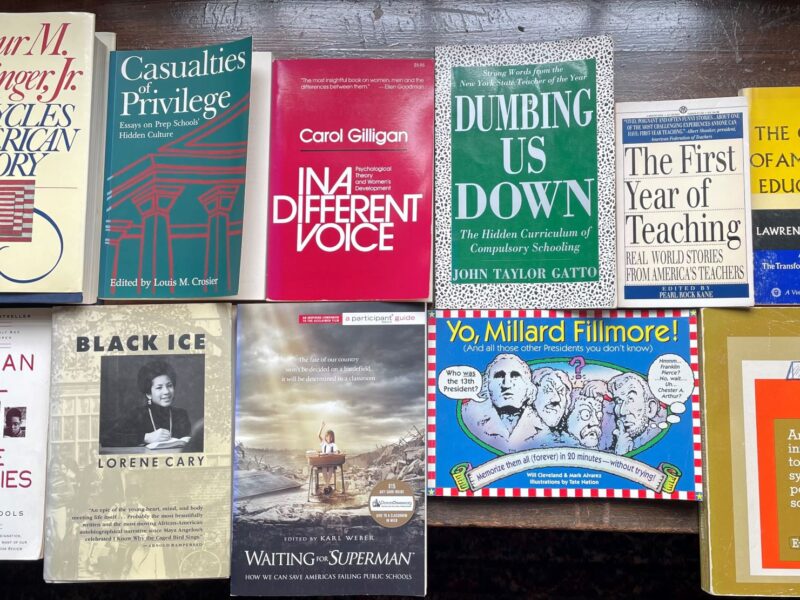Rule #4 is actually a mantra that I ask parents to internalize when they are engaged in communications with their college child. Should a call come in from an exasperated son or daughter regarding an incident involving a roommate, a professor, the food, the dormitory, or the weather, stop and ask yourself, “Is this my issue?”
However, to take it one step further, before you respond with your “final answer,” try “No” on for size. In other words, give “No” serious consideration as your “go to” answer. You may ultimately decide that “Yes” is the proper answer, and sometimes it is… Sometimes.
Obstacles as Opportunities
In our book The Biggest Job We’ll Ever Have (Scribner, 2002), my wife Laura and I present 10 Priorities designed to help parents build better families. One of these, Priority #6, is called Allow Obstacles to Become Opportunities. At the workshops we present, we play an association game where we ask parents to blurt out words that spring to mind when they hear the word Obstacle. Typical responses are: “Problem”… “Something to fix”… “Barrier”… “Hurdle”…”Embarrassment”… “Get Over.”
Then we ask participants to do the same for the word Opportunity. Typical responses for that word are: “Vision”… “Positive”…Something good”…”Growth”… “Potential advantage.”
What a difference! This Priority is about letting go of the myth that problems are a sign of weakness and realizing that obstacles come as a result of high expectations. The more you strive to accomplish, the more you will be asked to struggle. Just think what might happen if we chose to attach some of the above words associated with Opportunity and applied them to our Obstacles!
Pendulum Swinging
Many parents I encounter in my work are overly engaged in their children’s trials and tribulations, especially compared with the parents I worked with when I began teaching in the 1970s. I sometimes think that the parents of today’s high school kids have swung the pendulum too far to the other side when it comes to our parenting. If their parents didn’t go to their athletic games, they make sure they never miss one of their children’s games. If their parents never shared their emotions, they might gush theirs in their home. If their parents were overly strict, they might be very lenient in terms of enforcing rules and standards. It’s almost as though some are trying to fix their family of origin, something that cannot be done.
So when your child calls you and complains about his/her roommate’s grooming habits, a grade-stingy professor, the food, a lumpy mattress, a coach who doesn’t give him/her much playing time, ask the question: “Is this my issue?” (Hint: All of those would get a clear “No.”) I would also go one step further and ask you to try “No” on for size as your initial response.
The question can serve as a simple check and balance on your parenting. I do not suggest that your intervention is never warranted, only that without this mantra, your natural instinct might lead you into inserting yourself into any number of circumstances that your child is perfectly capable of addressing on his or her own. (And that might include bringing in someone to help… besides you.) The bottom line: These days I rarely encounter under-involved parents. (In fact, it’s almost refreshing whenever I do!)
Another point to consider is the message we give our kids, albeit unintentionally, when we step in and fix things for them. In exchange for our own (and their) short-term good feelings and peace of mind, we run the risk of communicating a message to them that says, “We love you, but we doubt that you could have ever worked this problem out on your own. So, we went ahead and fixed it for you.” There’s really no way to tell what impact this message might have on their confidence.
… Our better selves know that struggles and failures are where all of us learn the most. Perhaps you have heard the fable of the man walking in the woods who comes across a caterpillar struggling to fight out of a cocoon. Perceiving the caterpillar to be engaged in futile effort, he reaches up and snips the cocoon with a pair of scissors, thereby “freeing” the caterpillar. The caterpillar then plummets to the earth and dies shortly thereafter. The man did not realize that Mother Nature has designed an intentional process whereupon the caterpillar must struggle in the cocoon in order to develop the sufficient muscles to allow its wings to fly its body away as a butterfly. Interference with this process can result in serious long-term damage. It’s not nice to fool with Mother Nature!
This chapter presents stories told by parents of current college students and recent graduates fall into one of three categories:
– We did X and we are glad we did;
– We did X and we wish we didn’t;
– We wish we had done Y, but we failed to act.
I confess that while our kids were in college my wife and I made decisions and carried out actions that would fit in all three categories. I would predict that the same will be true for you.
Onward, Malcolm Gauld


